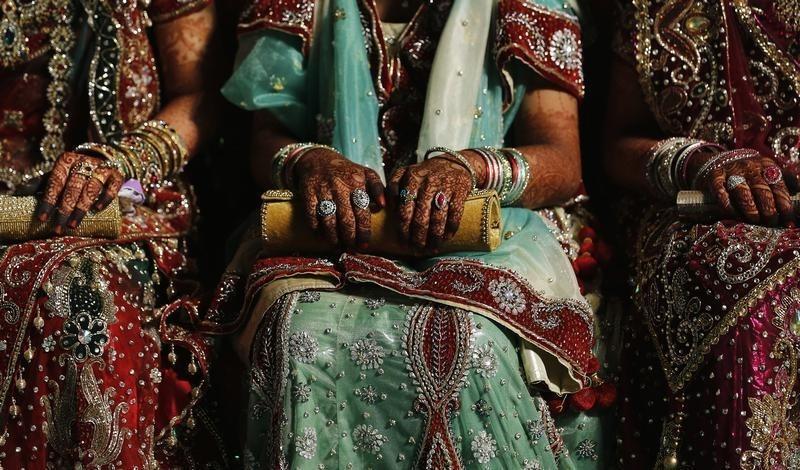
The Bharatiya Muslim Mahila Andolan (BMMA) said its survey also showed that three quarters of interviewees wanted a ban on child marriage, indicating a need for reforms in the Muslim personal law which governs family-related issues in India.
Activists say the current law discriminates against women and are calling for a well-defined Muslim law that criminalises polygamy, unilateral divorce, child custody and child marriage.
Read: Preventing child marriages
"It (the survey) suggests that Muslim women are aware of their legal rights and are determined to attain justice in family matters. An overwhelming number of women demand reforms in Muslim personal law as is prevalent in India today," said a statement from the BMMA.
"They want an elaborate codified law based on the Koranic justice framework to cover matters such as age of marriage, divorce procedures, polygamy, maintenance and custody of children."
Muslims are India's largest religious minority, making up more than 13 per cent of the country's 1.2 billion population, yet government data shows they are among some of the most excluded and marginalised communities.
Social indicators amongst Muslim women in particular are lower than average in the country.
For example, the literacy rate for Muslim women is just 50 percent compared to nearly 68 per cent for Muslim men, and below the national average for women of 53 per cent, said the report.
Only one in 100 Muslim women are graduates, while an average of 37 per cent of Indian women overall have had a tertiary education, it added.
The BMMA said that while there was an urgent need to improve Muslim women's access to healthcare, education and employment, it was also essential to address their "legal marginalisation".
The study, which surveyed 4,710 Muslim married women across 10 Indian states, found nearly 92 per cent of respondents said a Muslim man should not be allowed to have another wife during the first marriage.
It also found that more than 88 per cent of women interviewed wanted the legal divorce method to be the "talaq-e-ahsan" method -- a practice spread over a period of 90 days and involving negotiation.
Many women surveyed had experienced triple talaq, under which a Muslim man can repeat the word "talaq" three times to divorce his wife.
The survey said some respondents were divorced orally, others by letters from their husbands, and some over the phone or by SMS. More than 78 per cent had no say in the decision.
"The study has brought out a major injustice faced by Indian Muslim women through decades in the form of oral unilateral divorce or triple talaq," said the report.
1725612926-0/Tribune-Pic-(8)1725612926-0-405x300.webp)







1732177276-0/Copy-of-Untitled-(62)1732177276-0-270x192.webp)
1732177123-0/BeFunk_§_]__-(21)1732177123-0.jpg)
1732179136-0/Copy-of-Untitled-(63)1732179136-0-270x192.webp)






COMMENTS (16)
Comments are moderated and generally will be posted if they are on-topic and not abusive.
For more information, please see our Comments FAQ